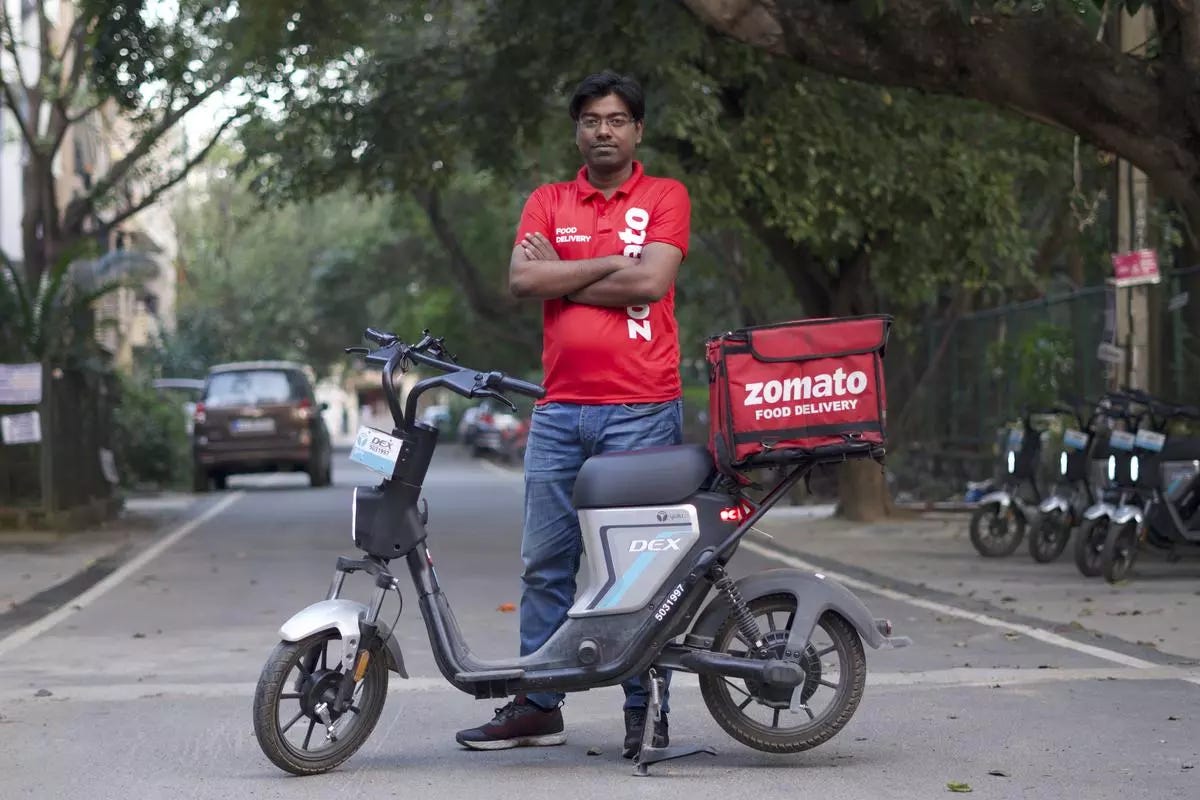Why Yulu is the new M80?
History repeats itself with electric this time.
Welcome to the 213th edition of the GrowthX Newsletter. Every week I write 2 pieces on startups & business growth. Today’s piece is going to 95,300+ operators & leaders from startups like Google, Stripe, Swiggy, Razorpay, CRED & more
Remember the 1990s?
Our morning Dhoodh Wala used to have this iconic model of a motorcycle. It was built for carrying stuff and wasn’t built for social status but more for utility.
The bike had no random features. It could carry heavy load and had a good mileage for Indian city roads. This meant it wasn’t built for performance & Indians made this into a complete last-mile delivery bike.
Cut to the start of Yulu.
Founded in 2017 as a consumer-focused company, Yulu initially launched as a city last-mile commute solution for traffic congestion areas. Very similar to what Bounce was doing back in the day with the petrol scooty pep model. The only difference - you had to pick up and drop a Yulu only from one of the designated spots in every city area.
But, the B2C model failed!

This is a classic example of how users in low trust societies behave when no one is watching. Bounce and Yulu’s B2C model failed just because of this. I personally loved the Bounce back in 2018.
Pivot to B2B model.
Yulu soon realized that the money wasn’t in the consumer business. It understood an important insight - a lot of unemployed workers who had come to the city in search of jobs didn’t have enough money to buy/rent a bike to work as a delivery partner in Swiggy/ Zomato’s of the world.
This was the start of something huge - Yulu created a new model Yulu DeX and started renting it out to delivery partners directly on a daily/ weekly/ monthly subscription. And it was a hit. This pushed Yulu to go deeper into the deliver partner model with Swiggy, Zomato, Grofers, Dunzo, Zepto & more.
By feb 2023, Over 4,000 Zomato delivery partners were organically using Yulu's EVs to make the last-mile deliveries. Yulu has total coverage of 50,000 delivery partners that have used the service atleast once.
How does unit economics work?
Yulu charges ~₹4.5K per month with a 1,600 Km maximum usage for a Yulu EV to a delivery partner of Zomato (this changes by the city).
I’m assuming it costs around ₹1,500 in battery swapping costs.
Add ₹500 in monthly repairs + battery swapping infrastructure.
Add another ₹500 in incidentals and insurance.
→ That’s a ~₹2,000 net margin per bike.
Assuming the cost of the bike is around ~₹40K to ₹45K. This means Yulu needs around 22 months to break even on the cost of the price.
Add the cost of capital at a 10% interest rate, it needs to recoup ~₹72K over the life of the bike. That’s around 36 months. Year 4 & year 5 will be pure profit if the bike is in working condition.
No wonder YULU is raising a debt financing round at the moment. It just makes so much sense to pay interest than pay a hefty equity at this scale.
But the model has strings attached.
The cost of running a battery swapping station: I am assuming a real estate cost of ₹50K / month and with service agent salaries, it will be ~ ₹80K. Add at least ₹50K for commercial usage of electricity. That means at least 100 bikes should be swapping most times of the month for it to break even.
Big risks as they expand. As Yulu expands to 1,00,000 bikes this year, the expansion needs to be deeper in a few pin codes rather than spread thin across too many city areas. Unit economics starts failing as soon as the density of bikes per battery swapping station goes for a toss.
Solid penalty framework. The B2C model failed because of bad behaviour from a few users. Yulu takes a ₹250 deposit per bike but that’s not enough. What it needs is a strong penalty framework with its Zomato/Swiggy partnership. Partners need to be penalized on delivery platforms for theft and vandalizing bikes.
Keep raising debt money. Which is something the founders have been able to do so far. The B2C play to sell Yulu Wynn XP will give the cash flow necessary for this B2B business of the size of a dragon.
I’m extremely hopeful.
This model needs to work to solve our overall goal of reducing the cost of energy for urban last mile. Most things are getting figured on regulation, funding and infra - it’s time EV last mile works for India
Big lesson for B2B vs B2C.
Yulu story tells us an important lesson.
The fundamental technology is the same between B2C & B2B models. Going after the right market to serve at the right time (when Swiggy/ Zomato were scaling crazy) made all the difference. I wrote a larger article for startup founders to nail this one piece of “what’s their real business”.
It’s one of our most important pieces from 2023. Do give it a read.
Thanks for supporting this newsletter 🙏🏻
I spend a sizable amount of my time writing pieces for this newsletter. If you find it interesting, please do take a minute and share it with your close circle.








Hey, can you elaborate on the calculations on breaking even on Cost Price of Yulu? I did not understand how you incorporated cost of capital in finding the time to break even. Thanks in advance!